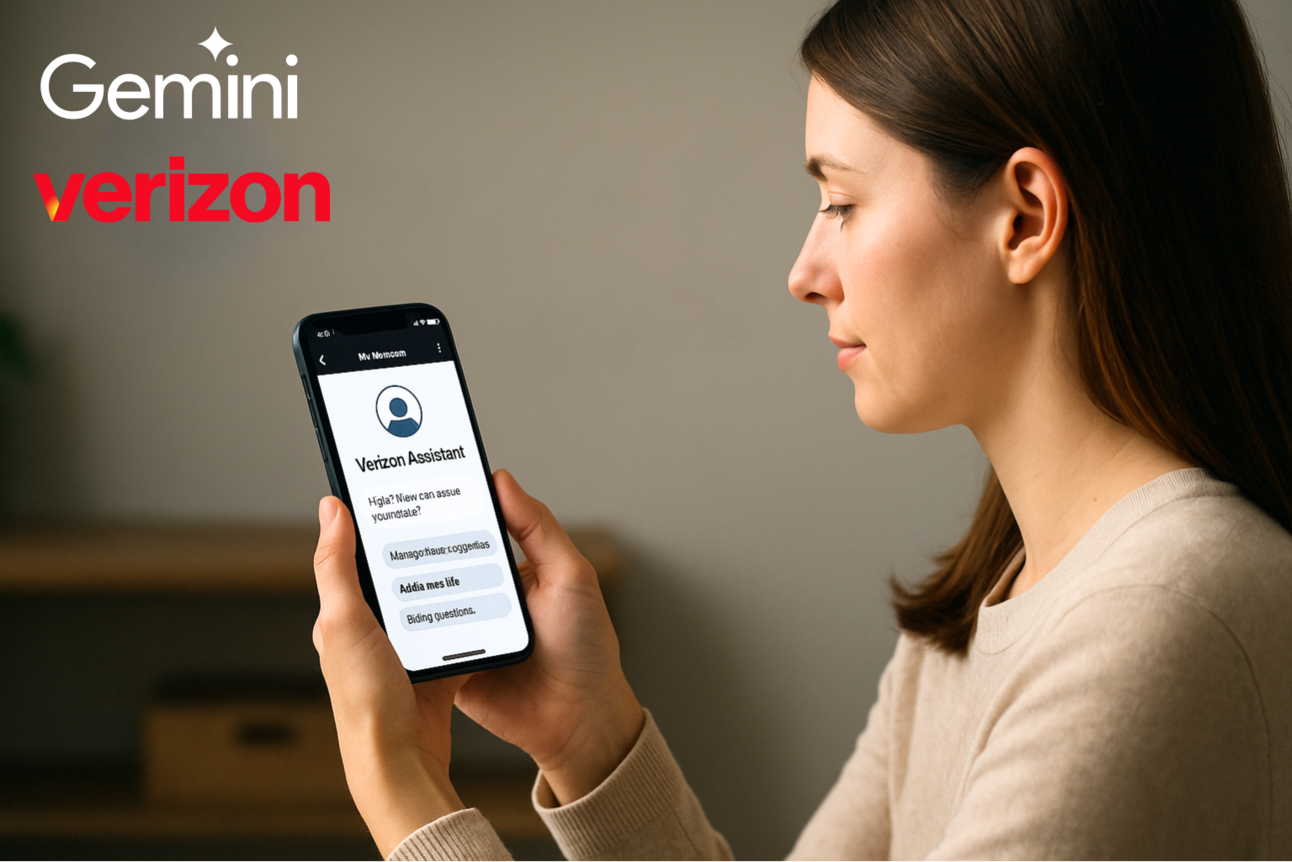
Verizon aims to revamp its customer service system with a new AI-powered assistant built on Google’s Gemini technology, aiming to make support faster and more efficient. The updated My Verizon app, released earlier this week, features the Verizon Assistant. This is a chatbot designed to handle the common customer needs, such as managing device upgrades, adding new lines, dealing with billing questions, and identifying saving opportunities.
Assistants are part of a broader push by Verizon to automate tasks that are typically handled by human services representatives. According to the company, this shift will provide users with faster and more flexible interactions. However, human help will not disappear. Customers can still request to talk to live agents, and the chatbot automatically escalates conversations that cannot be resolved.
Dory Butler, Verizon’s Senior Vice President of Customer Experience, told Verge that the company will work closely with Google to tailor its assistants to Verizon’s specific services and customer needs. By building a smaller, more focused language model, Verizon aims to limit the error known as “hagaku” in AI systems, achieving so far “north 90% accuracy where very small mistakes are occurring.”
Introducing the AI-supported “Customer Champion”
In addition to AI chatbots, Verizon is rolling out what is known as the “Customer Champion” program. According to a vague announcement from Verizon, these representatives are working on more complex service issues by Still Human using Google’s Gemini and Cloud AI tools. The company says these champions will manage cases end-to-end and provide updates via apps, text messages or phone calls. The goal is for customers to solve problems with a single interaction with Verizon.
To further improve accessibility, Verizon has expanded live support hours and is launching live chat 24/7. This said the company will handle better suited to the customer’s schedule and preferences.
Verizon’s move shows that large companies rely on AI to reconstruct how they interact with their customers. By blending real-time automation and human backup, the company hopes to reduce friction in the support experience without losing personal support options.
If successful, this hybrid model could become the standard for the telecommunications industry and beyond. Speed, accuracy, and human empathy in a single support channel.
Editor’s Note: tHis article was created by Alicia Shapiro, CMO of AINEWS.COM, and provided support for writing, images and idea generation from AI assistant ChatGpt. However, the only final perspective and editorial choice is Alicia Shapiro. Thank you to ChatGpt for your research and editorial support in writing this article.


